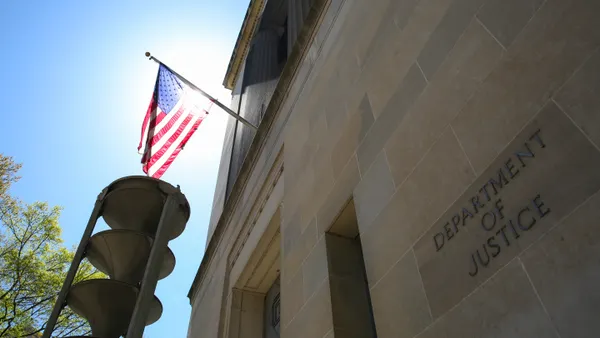Dive Brief:
- Last month, Minnesota Gov. Tim Walz signed a bill establishing the failure to disclose mandatory fees in any transaction as a deceptive trade practice.
- The law, which takes effect on Jan. 1, states that any ad, display or offer of a price for a good or service must mention all fees that must be paid to purchase the good or service. A provision exists for transactions where the total cost depends on consumer selections and preferences, as long as this fact is communicated clearly.
- While no mention of the rental housing industry is made in the law’s text, these new advertising requirements would apply to any fees charged in the process of renting an apartment, such as application fees, screening fees or pet rent.
Dive Insight:
Nearly a dozen other state assemblies have passed or introduced bills this year that would ban or place disclosure requirements on fees, either in rental housing or in all business conducted. Maine’s bill became law on April 3 and Virginia’s on April 17; both laws apply only to rental housing.
Under Virginia’s law, residential landlords are now required to provide descriptions of any rent and fees to be charged on the first page of the written lease. In addition, above the list of fees, the lease must state that no fee can be collected unless it is listed on the lease or incorporated later by a separate addendum.
Under Maine’s law, landlords must provide written disclosure of all rents, fees, or other costs prior to tenancy.
In addition, rent or mandatory recurring fees can only be increased with 45 days’ written notice to the tenant. Optional recurring fees can only be imposed if the landlord provides written notice to the tenant that they may opt in to certain services for a fee.
The state-level bills follow a series of actions on junk fees at the federal level, including a statement from the Biden administration and a proposed rule from the Federal Trade Commission. The FTC held a public comment period earlier this year for the proposed rule, which defines “junk fees” as costs not disclosed to customers before they begin a purchase, earlier this year.
Across the country
As of now, the California legislature has two bills in play concerning fees in rental housing. SB611, which passed the Senate in May, would require residential landlords to include all potential fees to be charged in any advertisement for a unit. This bill is on hold at the request of its author, according to Debra Carlton, executive vice president of state government affairs at the California Apartment Association, pending the California Attorney General’s review.
AB2493, currently in a Senate committee, would prevent landlords from charging application screening fees unless they have a policy of approving the first qualified tenant to apply. A previous draft of the law prohibited landlords from charging more than one application fee to a tenant if they applied to a property owned or managed by the same entity within a 30-day period; this requirement has been removed, according to Carlton.
The California Apartment Association has been working closely with the California State Assembly and with the authors of these bills. “We pushed for all of the amendments,” Carlton told Multifamily Dive.
In addition, California established requirements for advertising fees in a law set to take effect on July 1. However, the law is worded in a way that its provisions do not apply to rental housing, Carlton said.
Other states that have introduced bills related to fees this year, as listed in the National Apartment Association’s State Legislative Tracker, include:
- New Hampshire. HB283 would limit rental application fees. The bill passed both the House and Senate in May but has not been signed by the governor.
- Connecticut. SB15, which would require disclosure of fees, was introduced to the Assembly on the governor’s recommendation. The bill was reported out of committee and placed on the Senate calendar in March.
- Hawaii. SB2020 would have made not advertising all mandatory fees in a transaction as a deceptive trade practice. The bill passed the Senate, but in March its House committee recommended deferring the measure.
- Washington. HB 2114 would limit rent and fee increases, among other changes. The bill passed the House in February, but no action was taken by the Senate.
- Illinois. SB3485 would require disclosure of fees in all transactions. The bill entered the Senate committee in February.
- Arizona. SB 1417, which would set limits on rental application fees, was referred to committee in February.
- New York. A09192 would establish the "New York Junk Fee Prevention Act", which would set specific requirements regarding the disclosure and charging of fees. The bill was referred to committee in February.
- Alaska. SB 180, which would require the disclosure of fees in all business transactions, was referred to committee in January.
- Vermont. H.617, which would provide a definition for application fees as a supplement to an existing ban, was referred to committee in January.









